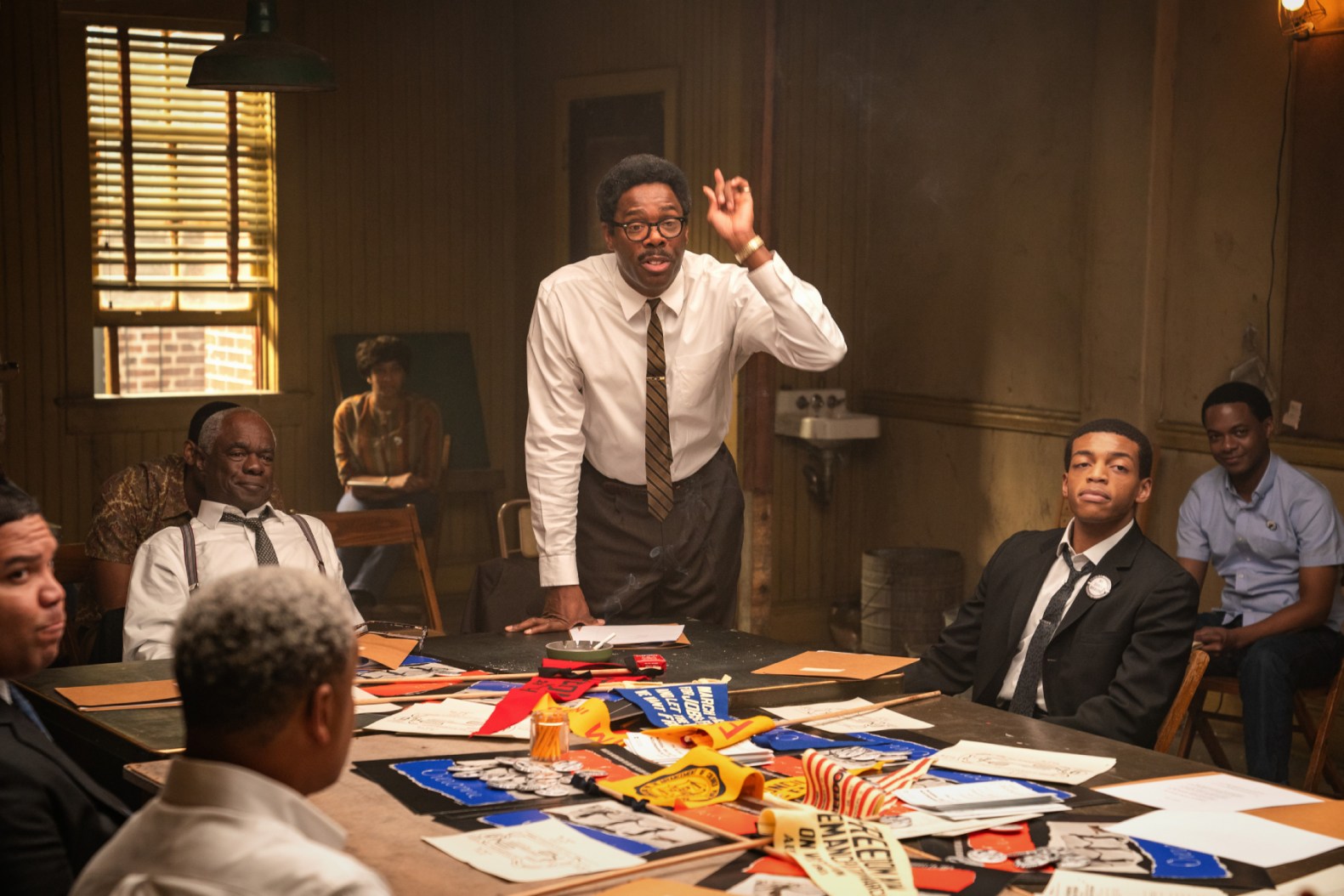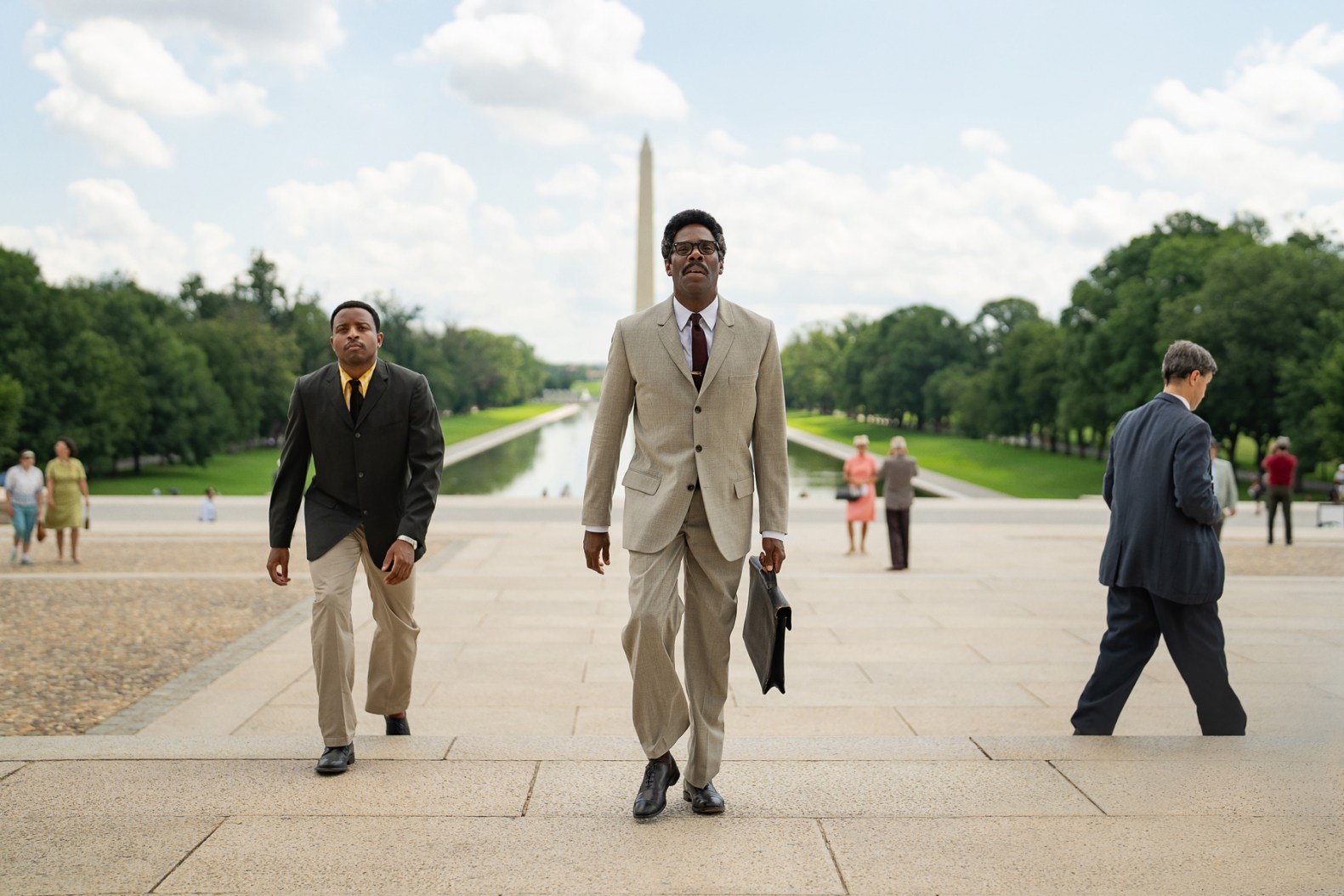RUSTIN. A Template Biography of a Non-Conventional African American Hero [REVIEW]

About two of the most famous fighters for the rights of Black people in the USA, Martin Luther King and Malcolm X, cinema has already said a lot – each of them had their own notable “solo” film, and they frequently appeared in other productions about the emancipation of Black Americans. However, the movement to end segregation in the USA had many other heroes, often standing in the shadows. One of them was Bayard Rustin, an extremely colorful character, whose story is told in one of Netflix’s latest feature films.
Rustin’s story revolves around a man who stood out among other Black activists. They usually divided into supporters of active struggle for rights, under the banner of the Black Panthers, and those who fought mainly with words and called for change through fiery speeches. Bayard Rustin did not belong to either of these groups: on the one hand, he advocated for passive resistance and non-violent protests, and on the other hand – mainly due to controversies surrounding his sexual orientation – he was not one of those who ignited the hearts of millions of Black Americans through the podium. However, he had the ability to do one thing: win people over. In George C. Wolfe’s film, we get to know Bayard Rustin, who is far from the distinguished leaders of the American Black emancipation movement – in Coleman Domingo’s brilliant performance, he is an extroverted and eccentric volcano of energy, always ready with a retort for any doubt or counterargument against his ideas. Rustin tells the story of a period in his biography when he first lost his position in the Black activist organizations, only to later not only regain it but also become a visionary and one of the leaders of the 1963 March on Washington, then the largest peaceful protest in US history.

George C. Wolfe’s film does not stand out in any obvious way – it is a impeccably crafted biopic about an Important Historical Figure. Truly, IHF should be a mandatory term in film terminology, describing the generic hero of a biographical film, to whom certain attributes can almost always be assigned: courage, the ability to inspire others, selflessness, and often great merits covering any morally questionable decisions or flaws in character. Bayard Rustin is precisely such an IHF – an interesting hero, deserving of admiration, appearing as a person with whom one would like to interact intellectually. But at the same time, this character falls victim to the refined biographical formula that prevents the main character from becoming a fully fleshed, more mortal-like figure. Although Rustin is a film executed very solidly, it does not shy away from unreal, excessively inspired scenes – such as the one where Bayard presents the idea of the Washington march to a group of young activists gathered around him, whose reaction resembles more an ecstatic spasm than enthusiasm for participating in a socially significant event. Fortunately, however, this is not the norm in Rustin – the film also includes scenes testing the protagonist’s character, such as the one where, due to a misjudgment of the situation, he leaves the ranks of the NAACP, crucial for Black organizations, or the one where his friendship with Martin Luther King (Aml Ameen) is put to the test due to defamatory media reports. Thanks to these scenes, Rustin avoids monumentality, gaining more biographical authenticity.

In executing the screenplay by Julian Breece and Dustin Lance Black, an Oscar-winning writer for Milk, the director of Rustin had only one task – to create a biographical film that would not bore the viewer and would not distort reality. The first was achieved through the efforts of Coleman Domingo and an excellent supporting cast, including Chris Rock, Jeffrey Wright, and CCH Pounder, and as for whether the film managed to maintain factual accuracy, it can be judged primarily by those who know the history of the movement for the rights of Black Americans inside out. And although Rustin will undoubtedly not become a new standard in the category of biographical cinema, its greatest advantage is that it brings viewers around the world closer to an extremely important figure in the history of American activism for the rights of not only Black people or homosexuals but human rights in general.
(For those interested in Bayard Rustin’s profile and the way it is presented in the Netflix film, I encourage you to read this article published in the Smithsonian Institute magazine.)

